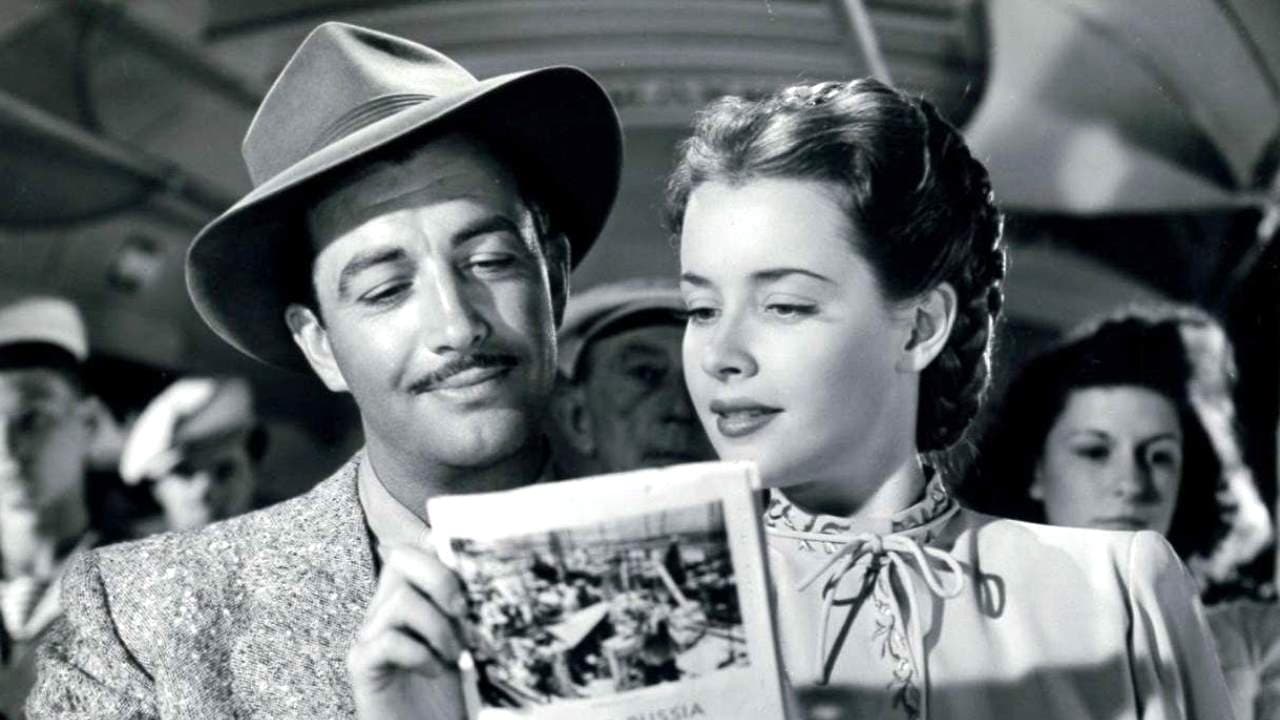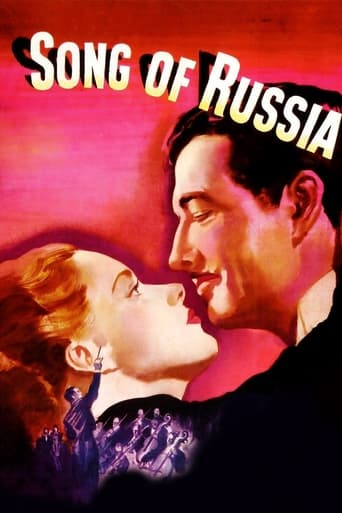

The song of Russia isn't the face of Russia. The essence of a song (for any creature) is a call for unattainable beauty, isn't it? Does this film call to arms (to be war propaganda like German colored film "Kolberg" or Japan anime "Momotaro: Umi no Shinpei")? Only in the sense of defending the beauty in our hearts (love, devotion, patriotism). No one mention about communism and its spreading, only the call by means of music for help during wartime regardless social and cultural differences, this is a noble step from Americans and why they have been feeling ashamed after that (like enamored and betrayed)? The live action seems to be a beautiful art, not an ugly artificiality, maybe pompous as usual background for love or heroic story wherever it happens, so it can't be regarded like awful propaganda as hurt Ayn Rand said in her HUAC negative testimony about the film. Her words "They (russians) try to live a human life, but you understand it is totally inhuman" are totally reductionism. What about American view of Soviet Russia, I've never found it adequate (in contrary to the style of socialistic realism in soviet films), and American stamps in Russian context always looks funny for me, but the humanistic kindness and classical music in the film erases ambiguity and national differences. No wonder I'm pleased with the film =)
... View MoreRevisionist history can prove unfortunate. There is very little that moves along with apparent 'truth' in this film, BUT it was made at a critical time in our history -- a time when it was necessary to create unity between those fighting the horrors of Nazism. No, the film is not a very good one, but it is a formidable piece of history and should be watched with the adult comprehension of the time. And there is absolutely NO EXCUSE for the wreckage wrought by McCarthy-Cohn and their henchpeople during the Red Scare era that destroyed lives!! No excuse at all. As for SONG OF RUSSIA, it should also survive as a reminder of the screen aura of Susan Peters. (As for her true abilities, watch this one and then SIGN OF THE RAM!!) Along with the obvious propoganda about the 'perfect' society of the USSR, the worst part of this film, of course, is the usually awful performance of Robert Taylor, whose post-War attitudes were those of a true coward, as well as a lousy actor.
... View MoreThis was the first film that I can recall seeing, way back in the 1940s. I was about 6 or 7 years old at the time (I'm now 66). I can remember nothing of the rose-tinted picture of Stalin's Russia described in John Barnes' comments.In fact, I can recall little of the plot, other than that it featured an orchestral conductor and extracts from Tchaikovsky's 1st Piano Concerto. Thus, the film introduced me to Tchaikovsky and classical music and, for that, I am eternally grateful.
... View MoreWho knew that life under a brutal totalitarian regime could be so carefree? Even though the film was made for World War II propaganda purposes, the inanities that litter this film have to be seen to be believed. (That would be difficult, I know, since it is not available on videotape. or DVD.)Among the aspects of Russian life, circa 1941, to which this film introduces us are: town meeting democracy, freedom of religion, rural peasants who eat hearty meals at tables set with china, crystal and silver, and on and on. Soviet barbarities are played down or, more usually, ignored altogether. I saw this film in Washington around 1983 as part of a twin bill with the other infamous WWII paeon to Stalin's Russia, "Mission to Moscow." I think the latter was, in places, at least a bit more honest than this rose-colored clunker. If ever you wondered why Congress went hunting for Communists in Hollywood, check out these two films.
... View More